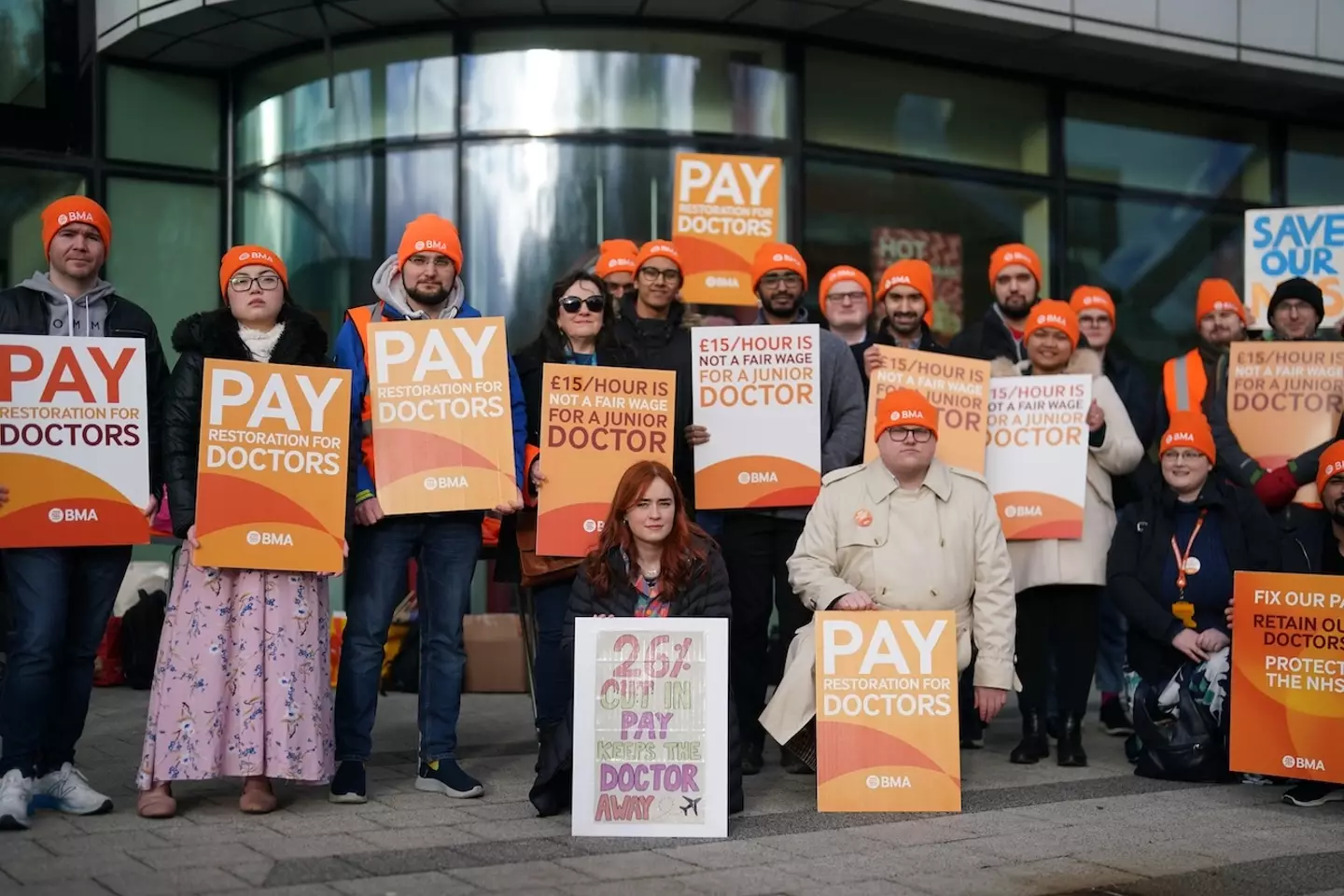 Surely the goal in the world of work is to be making as much money as you can from a job that doesn’t consume too much of your life.
Surely the goal in the world of work is to be making as much money as you can from a job that doesn’t consume too much of your life.Most people want lots of free time and the financial security to enjoy that free time, and hopefully in the future we’ll be trending towards shorter working hours.
There’s plenty to indicate that people working for shorter periods of time are healthier and happier, though that’s got to be balanced by the need to make enough money to live on.
Experiments in the UK with a four-day working week have indicated that it brings some benefits in the form of increased productivity, with supporters of the shift change suggesting that giving people an extra day off would likely make them better in the four days of work they were in and they’d do basically the same work.
If you’re looking for a career change that pays well and doesn’t take up too much of your time then the TUC has a big chart with the best paying roles and how long the average Brit works in them a week.
The highest earners, unsurprisingly, are chief executives, stockbrokers and senior figures within aviation, while on the other end of the scale waiters, barbers and florists were unlikely to be absolutely raking it in.
Let’s say you wanted to work no more than 30 hours a week and wished to earn above the average UK salary, say for the sake of argument £40,000 or more.
According to the TUC’s tool, there’s a bunch of jobs which would meet this criteria, though you might need some major retraining.
If you work in one of these jobs and spend over 30 hours a week on it then please don’t get mad at us, this is based on the average hours worked per week in the job, at least according to the Annual Survey of Hours and Earnings.
Senior education professionals

“I’m actually 26, this job has turned me grey very quickly.” (Getty Stock Photo)
This is a pretty catch-all term for people like a headteacher, university vice-chancellor or major bigwig administrator at some sort of educational institution.
You’re basically in charge of a school and making it run, or you’re responsible for a major aspect of running it.
According to the surveys, someone in this role could expect to work about 30 hours a week and take home a salary of £62,920, though given how widespread a term it is for the various jobs that fall under it, you might not end up getting the average salary or hours worked.
Plus, you’re going to need the relevant education and experience before you get a job like this.
Believe it or not, when applying to be in charge of a school it can be quite difficult to get the job if you can’t demonstrate that you know what you’re doing.
Solicitors

“I’m mostly doing this job for the wig.” (Getty Stock Photo)
Another entrant into the 30 hour on average club, you will surely need to have a law degree to even get into this career.
According to the survey, a solicitor in the UK makes on average £57,200 a year, though this is going to vary wildly depending on experience, location and employer.
Some will earn far above that but many who are just starting out are likely to rake in well below that figure, and again we ought to blare a warning about expecting to get the average when it comes to hours worked.
Don’t let us put you off getting a law degree though.
Dentists

It turns out you need a lot of training before you’re allowed to use sharp tools on people’s teeth. (Getty Stock Photo)
Here’s something the UK is in dire need of more of, though the bad news is that dentistry requires a lot of training before they let you loose on people’s teeth.
It’s a pretty sensible precaution, but if you can hit the average figures for your career then you could be working 23 hours a week for £54,080 a year.
That all sounds pretty good, and as a bonus you’re extremely unlikely to be unemployed because, as we said before, there’s a dire shortage of dentists in the UK at the moment.
Have you tried booking an appointment? Nightmare, you may as well retrain for years to become a dentist yourself at this rate.
Optometrist
.jpg)
“You’ve still got both of your eyes since the last time we met, that’s a good start.” (Getty Stock Photo)
If you don’t want to poke around with people’s yucky teeth then perhaps you’d like to earn slightly less on average (£51,480) and work slightly more (26 hours a week) to figure out what’s going on with their eyes instead.
Once again, this is a job that requires a hell of a lot of education and training, it’s almost as if most high paying jobs have a significant skill requirement.
Anyhow, in this job you’d be doing eye tests and working out people’s optical prescriptions, as well as identifying other health concerns a person might have.
While they’re mainly concerned with eyes, optometrists can actually spot conditions such as diabetes just from studying your eyes.
Barristers and judges

“I am the law!” “Jeff, you’ve been asked to stop shouting that.” (Getty Stock Photo)
This will apparently earn you the same amount as an optometrist, but you’ll have to work 28 hours a week instead.
One suspects that given the backlog in the UK’s justice system, and the many times when a job takes a lot longer than official figures suggest, that you’d be at it much longer than the average figure would indicate.
You’re also definitely going to need a law degree for this one, and significant time training on the job.
Pharmacist

You can be a pillar of your community by becoming a pharmacist. Lots of people will need you. (Getty Stock Photo)
You’re down to earning on average £45,420 a year for 30 hours work a week here, and you will need to have a pharmacy degree and be registered.
You’ll be handing out lots of drugs and medications to people who need them, so you absolutely need to know what you’re doing and not screw it up.
On the plus side, if you do go through all the education and training then you’re very unlikely to be out of a job as the unemployment rate for pharmacists is minuscule.
School inspector

“Is that really how you normally teach your class?” (Getty Stock Photo)
You’ll be the person who makes all the teachers change their lesson plans and asks the students to pretend that things always go down this way.
Apparently, the average school inspector makes £43,160 a year for 30 hours work a week, but once again, you’ll likely need a degree and experience in the world of education.
Many inspectors have previously worked as head teachers, deputy heads or heads of department.
Musician

“Anyway, here’s Wonderwall.” (Getty Stock Photo)
The average musician in the UK supposedly works for just 22 hours a week for £42,120, and as you might have guessed, an ability to play at least one musical instrument is expected.
You may be writing your own music or be working as part of a group or orchestra, and on the plus side this is meant to be one of the careers which is least taxing of your time out of all of them.
However, ask musicians how well they’re doing financially and you’re likely to get a wide range of responses. So, don’t go quitting the job and picking up the guitar as your ticket to financial security quite so quickly.
Nursery and primary school teachers

“They say never work with children or animals, maybe we should have listened.” (Getty Stock Photo)
Last on the list earning an average of £40,560 and working an average of 28 hours a week are professional teachers working in nurseries and primary schools.
Of course, ask any teacher how many hours they actually work compared to their official hours before you try and get one of these jobs, and understand that you’d have to work with the most feral creatures alive: children forced to go to school.
You’ll first have to be qualified as a teacher before you can do this job, for reasons that should be obvious.

You might be buzzing if your boss lets you finish an hour early on your last shift before Christmas, or maybe just made up with the bottle of fizz they bought you from the supermarket.
But imagine how you’d feel if they spent thousands on you as a festive treat.
Well, get a load of this. The ‘best boss in the UK’ has explained why he rewards staff with holidays to the Maldives and Rolex watches for Christmas.
Benjy Leslie is the CEO and founder of Connect Management, the largest social-first talent agency in the country.
Always having believed in treating staff well means they have more motivation to crack on with work, the 25-year-old takes them on all kinds of getaways like trips to Disneyland Paris.

The ‘super amazing’ team get treated to all sorts. (SWNS)
And for his ‘Santa Leslie initiative’ he spent £20k on gifts with the team member making the highest revenue that day getting to pick out a present.
Gifts for that ranged from Celebrations and Lego to headphones and a Rolex.
Leslie reckons it’s all ’worth it’ to have happy staff and a positive work environment.
The Londoner says: “I love giving back. Business owners sit on huge amounts of profit.
“For me it’s about sharing my gratitude. I have got a really happy work force – with 89 per cent staff retention.
“We wouldn’t have profits if the staff were not happy.”
Back in 2019, the lad quit his advertising job and set up his business a year later and achieving success, he wanted to share that with his team.
He said: “I took them all to the Maldives for the first year of the business doing well.”
Expecting his influencers to make a whopping £18 million this year, the CEO is able to give back lots of different incentives.
Leslie gives away a holiday every month with a ‘tombola’, which gives his staff ‘that buzz and excitement’.
“The more revenue they deliver to the business the bigger slice of the pie you get,” he adds.

Staff get treated to holidays for their hard work. (SWNS)
With the chance to win every day this Christmas, he already has his staff coming into the office daily because he believes working from home is ‘lonely’ and ‘less productive’.
So, Leslie apparently creates a fun office environment and makes someone bring in a game to play each morning.
He said: “They bring a game and that brings the energy in the morning.
“On a Friday afternoon we do gratitude. Each person has to say something to someone that they are grateful for.
“It’s just a reminder – it’s such a fast-paced world we live in and people need to be shown thanks.”
Leslie took his staff to Disneyland Paris for this year’s Christmas trip as a ‘thank you for everything’.
But he does ‘expect a lot’ from his staff, who he describes as a ‘super amazing team’.
“A lot of work places people resent their bosses and come in and do the bare minimum. I don’t feel we have that. You can’t buy that loyalty from staff,” he added.
“You can only earn it by being genuine.
“We do expect a lot, but we hire the right people. If I treat people well, they will work harder for me.”

A number of UK banks have suffered online technical issues leaving thousands of people unable to access their money on payday.
HSBC has apologised to customers after they were unable to access their online banking today (28 June).
Meanwhile, some on social media say their money hasn’t even transferred through yet.
“We’re really sorry that some customers are having issues accessing personal online and mobile banking,” HSBC UK said.

Online banking hasn’t been working for thousands of customers. (Getty Stock Images)
“Our IT teams are working hard to get these services back to normal. You can still authorise online card purchases via SMS.”
In an update, HSBC UK tweeted: “12:15 Update 1/2: Customers can now log into personal Online & Mobile Banking. We’re working hard to resolve secondary issues, including view recent transactions. We’re sorry and will continue to share updates. Please see 2/2 re separate payments issue affecting multiple banks.
“2/2: Customers sending payments may see a slow response or see a failure notice. Please check with the recipient or view your recent transactions in the mobile app via the notifications bell icon in the top right corner before attempting to the send the payment again.”
Taking to X, some users complained that they needed to access money to pay their bills on payday.
“This has happened several times before”, one person wrote, while another commented that this has happened ‘twice now in the past couple of months’.
“It’s not just the personal account app it’s the business banking app too?” penned a third, as a fourth said: “Classic with the banking app being down on payday.”
DownDetector said that more than 7,000 problems were reported at 8.45am.
Virgin Money and Nationwide said they are also working on the issue.

UK banks have apologised for the disruption. (Getty Stock Images)
Nationwide acknowledged it was ‘aware there is a delay with some customers receiving their salary or pension payments today’.
The bank added: “These payments are being processed, and will be paid into your account today. Sorry for any inconvenience this is causing.”
Virgin Money tweeted that they are ‘aware of intermittent issues with accessing online banking and our app, which we’re working to resolve as quickly as possible’.
“Thanks for your patience while we restore the service,” they said.
Earlier on, the bank told customers that there would be ‘delays to payments both in and out of their Virgin Money account’.
This comes after issues last month on the same date, as NatWest experienced an approximate four-hour outage.

Junior doctors in England are continuing to stage strikes and an NHS palliative care doctor has explained why.
Former broadcast journalist Dr Rachel Clarke – an author of three Sunday Times bestselling books – has taken to social media to give her view on the ongoing dispute between government and health workers.
Just last week, the British Medical Association (BMA) said it gave the government ‘a final opportunity to make an offer and avoid strikes’.
The union has since announced that junior doctors will stage a strike on 27 June to 2 July, in the run-up to the General Election.

Dr Rachel Clarke has done an ‘out of hours’ breakdown. (X/@doctor_oxford)
Opening on the pay disparity between junior doctors and other professionals, Dr Clarke wrote on X: “Out of hours plumber £80-£200/hr.
“Out of hours mechanic £80-£200/hr.
“Out of hours electrician £80-£200/hr.
“But Sunak thinks these junior doctors with £100k of debt deserve only £22/hr for extra locum shifts after working a 48 hour week paid at £13/hr.
“No wonder they’re striking.”
This comes after the co-chairmen of the BMA junior doctors committee, Dr Robert Laurenson and Dr Vivek Trivedi, said in a statement: “We made clear to the Government that we would strike unless discussions ended in a credible pay offer.
“For more than 18 months we have been asking Rishi Sunak to put forward proposals to restore the pay junior doctors have lost over the past 15 years – equal to more than a quarter in real terms.
“When we entered mediation with Government this month we did so under the impression that we had a functioning government that would soon be making an offer.

Junior doctors are continuing to strike. (Getty Stock Image)
“Clearly no offer is now forthcoming.
“Junior doctors are fed up and out of patience.
“Even at this late stage Mr Sunak has the opportunity to show that he cares about the NHS and its workers.
“It is finally time for him to make a concrete commitment to restore doctors’ pay.
“If during this campaign he makes such a public commitment that is acceptable to the BMA’s junior doctors committee, then no strikes need go ahead.”
Prime Minister Sunak has commented on the decision, saying: “Today’s action by the junior doctors, on the same day as the Labour Party are having a health day, does slightly ponder the question as to whether this is politically motivated.

Junior doctors will stage a strike on 27 June to 2 July. (PA)
“It’s hard to escape that conclusion, given the timing and to call a strike in an election campaign, especially as we found a constructive resolution with the remainder of the NHS workforce.
“We started with a million NHS workers under the Agenda for Change deal, including physiotherapists and many others. And most recently, we reached an agreement with the consultant doctors.
“So it’s just the junior doctors that have failed to find a resolution with the Government, and that’s in spite of them already being offered a pay deal that is worth on average a 10 percent increase, a 10 percent increase already, and we were prepared to keep talking.”

Those working in the UK could soon be given the legal right to request a four day working week under revolutionary plans being brought forward by the new Labour government.
But whether your request will be accepted or not cannot be guaranteed, the Government has warned.
Under the new plans being brought forward by Sir Keir Starmer’s government, UK employees are set to be given the right to ask to work their weekly contracted hours over a four day period as opposed to the standard five.
It comes days after leaked Government plans showed Starmer is set to launch a huge crackdown on smoking in public places, including beer gardens.
A spokesperson for the Department for Business and Trade told the BBC that they hoped the four-day working week concept would ‘increase productivity’ across the country’s industries, as well as aid in getting more people ‘back in to work’.
The PA news agency also reports that any plan to open up ‘compressed hours’ to more workers would not result in bank holiday-style weekends each week.
Instead, employees would usually need to work their contracted hours – even if they choose to over fewer days.
A Whitehall spokesperson said: “We have no plans to impose a four-day working week on employers or employees. Any changes to employment legislation will be consulted on, working in partnership with business.
“Our Make Work Pay plan is designed around increasing productivity and creating the right conditions for businesses to support sustained economic growth.”

Keir Starmer’s Labour government is behind the plans (Ian Vogler – WPA Pool/Getty Images)
They added: “Many employers already provide good, family-friendly conditions for their workers because they know that doing so improves morale and retention.
“We are working in close partnership with business and civil society to find the balance between improving workers’ rights while supporting the brilliant businesses that pay people’s wages.”
More details about this are expected within the Government’s first 100 days in office.
It comes after Labour promised it would ban zero-hour contracts in a document titled ‘Labour’s Plan To Make Work Pay’; released just two days after the 2024 general election was called by former PM, Rishi Sunak.
Instead of zero-hour contracts, Labour has said they should be replaced them with documents which reflect the number of hours a person regularly works.
Following on from the mooted four day working week plans, Conservative shadow business secretary Kevin Hollinrake said that businesses were ‘petrified’ about the plans.
He said: “Despite warning after warning from industry, [Deputy Prime Minister] Angela Rayner is pressing ahead with her French-style union laws that will make doing business more expensive in the UK.”

You would have to work your contracted hours over the four day period (Getty Stock Images)
Meanwhile, Labour’s education minister, Baroness Jacqui Smith, dismissed reports that businesses would be forced to accept employee’s demands for a four-day week, telling LBC Radio: “We think that flexible working is actually good for productivity.
“So the four-day week that I know is on the front of quite a lot of newspapers today, what we’re actually talking about there is the type of flexible working that enables you to use compressed hours.
“So perhaps instead of working eight hours a day for five days, you work 10 hours a day for four days. You’re still doing the same amount of work, but perhaps you’re doing it in a way that enables you, for example, to need less childcare, to spend more time with your family, to do other things, that encourages more people into the workplace, which is an enormous part of that growth mission.”


